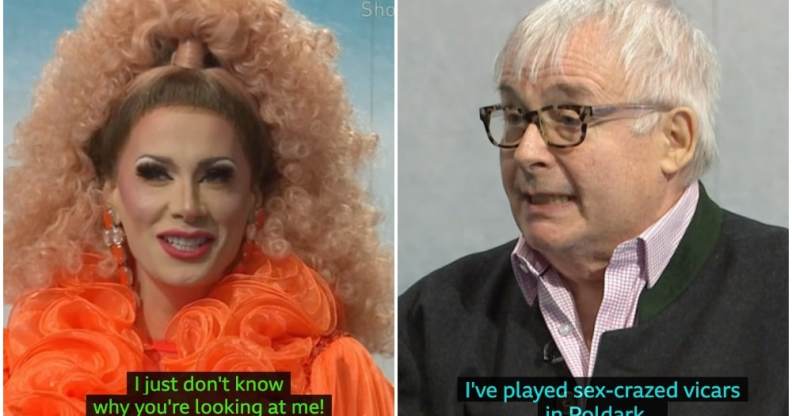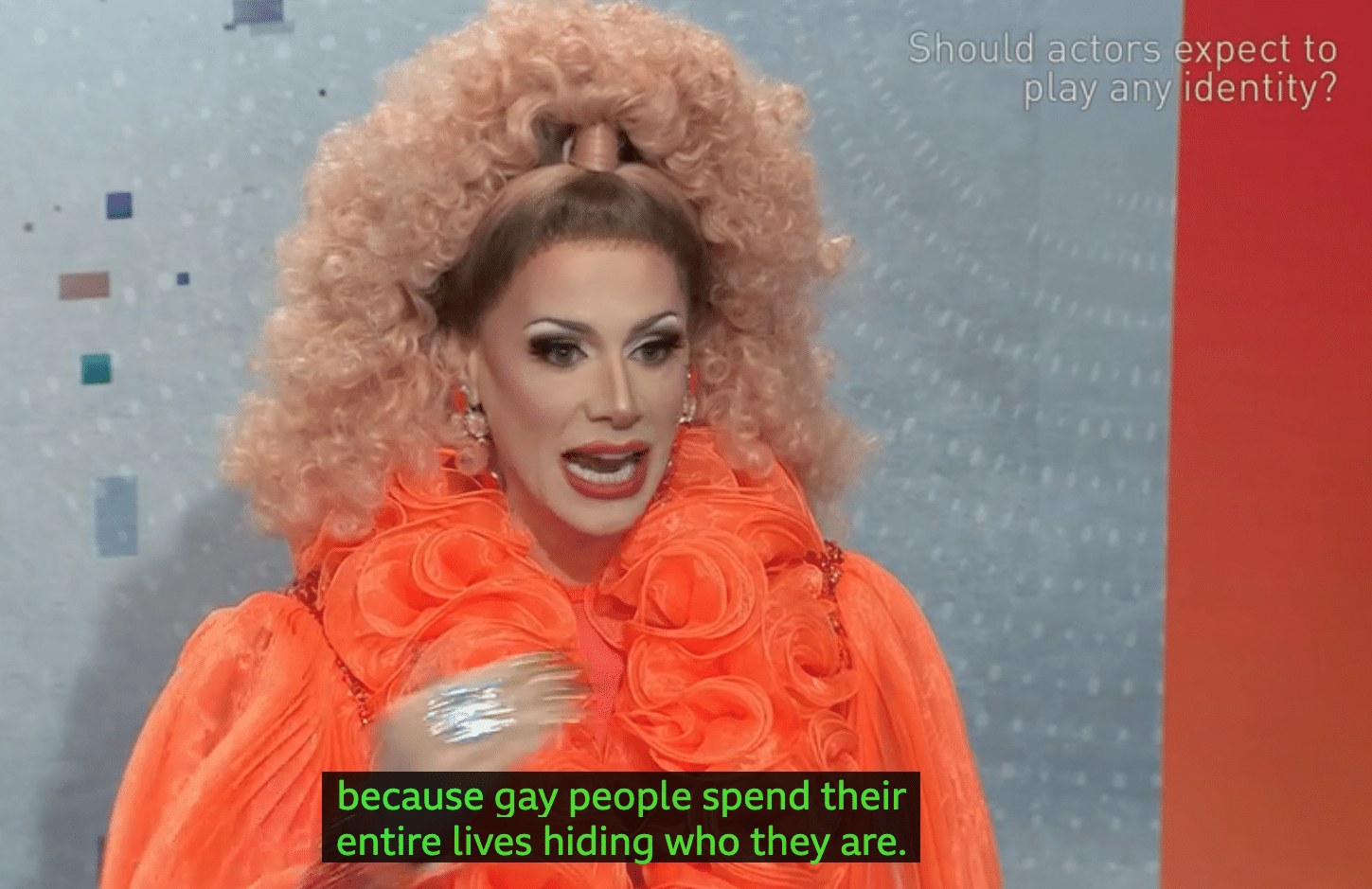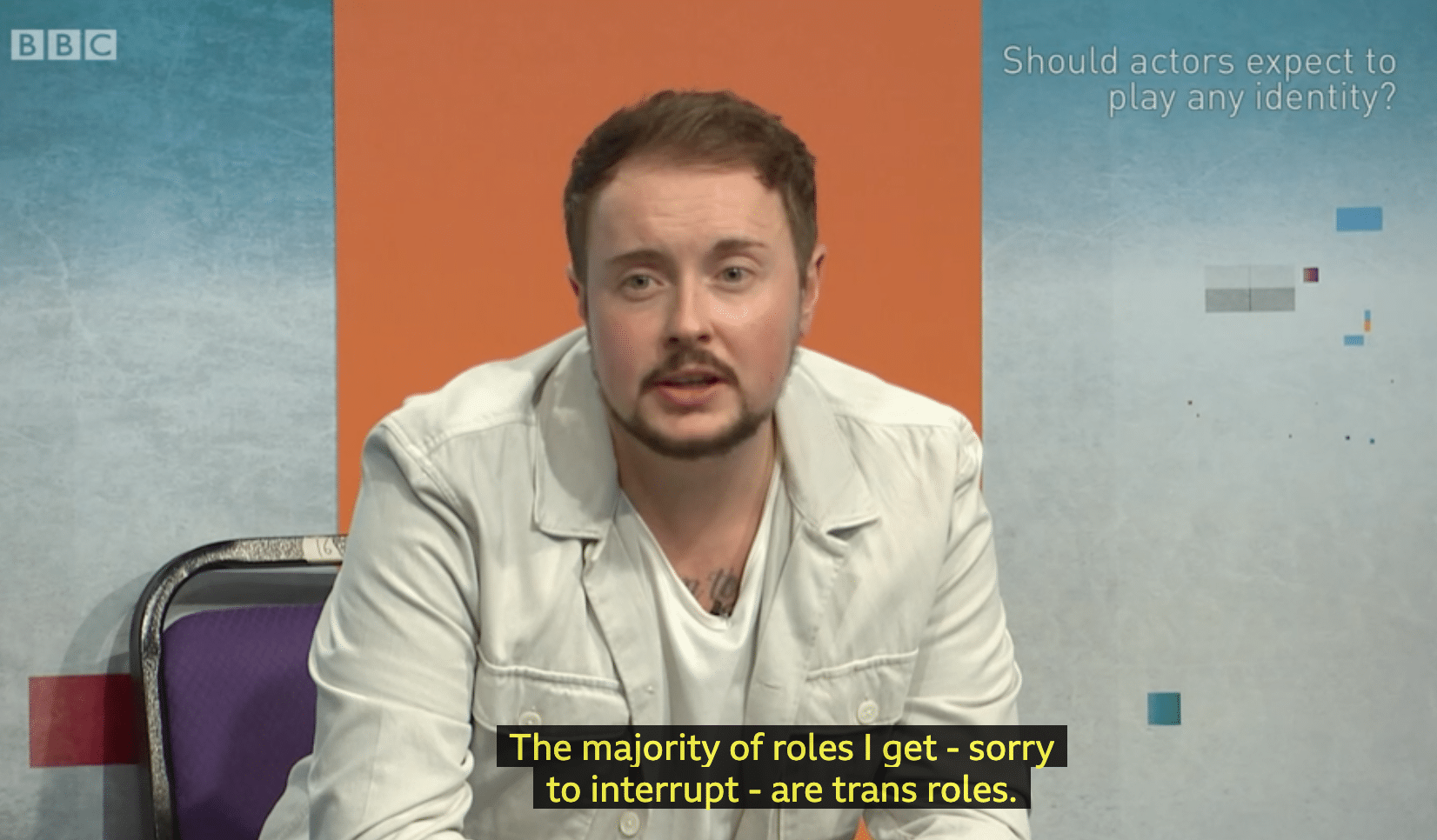Christopher Biggins thinks Russell T Davies started gay actors debate to get publicity for It’s a Sin

The debate got a little strange at some points (BBC)
A debate about whether only gay actors should play gay roles led to a clash between trans EastEnders star Riley Carter Millington, actor Christopher Biggins, journalists Ash Sarkar and Benjamin Butterworth and Divina de Campo on Sunday (21 February).
The Big Questions debate, titled “should actors be expected to play any identity” and moderated by Nicky Campbell, tackled the issue of whether only LGBT+ people should play gay characters, recently highlighted by Russell T Davies when he discussed the casting decisions for It’s a Sin, his recent hit, 1980s-set show about the early days of the AIDS pandemic.
Russell T Davies has been vocal about the fact that he doesn’t believe that straight actors should ever play gay roles. In an interview with the Radio Times in advance of It’s a Sin‘s release, he said: “It’s about authenticity, the taste of 2020,” adding “you wouldn’t cast someone able-bodied and put them in a wheelchair, you wouldn’t Black someone up. Authenticity is leading us to joyous places.”
The BBC debate ran with this theme, with journalist Benjamin Butterworth the first to make his case, saying that: “Anyone who’s seen It’s a Sin will have felt the authenticity and the power that that gay cast had that they brought to it… but when you think about the experience of the HIV/AIDS pandemic, that was really quite recent and is something that lives in many peoples’ lives to this day.
“The authenticity that those actors were able to bring to it because they were part of the community that was most affected by that brought the show to life.”
Speaking about Tom Hanks in Philadelphia, a topic that comes up again and again to argue in favour of straight actors playing gay roles, Butterworth said: “There have been some great straight actors do good versions of gay stories… and it’s revealing that the only way those films got made was because a straight actor was playing gay.”
‘Gay people spend their entire lives hiding who they are’
He added: “Why were they all straight? They were all straight because those were the only people they thought people would pay to go to the cinema to go and see.”
The debate then spoke about why there wasn’t, for example, a gay Hugh Grant: Namely, because gay actors have either been passed over for leading roles or had to pretend to be straight to get ahead in Hollywood.

Former Drag Race UK contestant Divina de Campo made some strong points (BBC)
Drag Race UK star Divina de Campo, resplendent in a ruffled orange gown and blonde wig, weighed in, with a very powerful point, saying: “Gay people spend their entire lives hiding who they are. When you’re on the bus, when you’re on the train, when you’re at the supermarket you find ways of heteronormalising yourself… When does a straight person have to hide who they are in order to fit in?”
However Christopher Biggins, arguably one of the country’s most vocal opinion-havers, wasn’t having it.
“I’ve been an actor for a long, long time and I’ve played lots of heterosexual people. I’ve played sex-crazed vicars in Poldark, which I absolutely loved… That was a joy to play that part because it was a part and all acting is parts. I think Russell was wrong… I think he was trying to provoke publicity for a show that he didn’t know whether it was going to work.”
Biggins doubled down on this point of view, clashing with Divina de Campo and other panelists about the issue.
Ash Sarkar said: “In order to be judged on merit you’ve got to get in the room first, and for people from LGBT+ backgrounds there are so many careers that didn’t get to take off because of institutional discrimination, because it was thought that if they were gay all they could do is play gay… And I think there have been similar stories when it’s come to actors of colour as well. Here’s the roles you can go for, but it’s very limited.”

Transgender actor Riley Carter Millington explained how being part of the LGBT+ community has led him to miss out on roles (BBC)
Trans actor Riley Carter Millington, who played Kyle Slater in EastEnders between 2015 and 2016, agreed, and explained how he’d love to play the kind of big part that someone like Hugh Grant might be offered, but as an out trans man he doesn’t get chosen for leading man roles, saying: “The majority of roles I get offered are trans roles, but why? I’m proud to be trans but I have a label that’s on show constantly.”
Biggins finally seemed to bend to that point, going on to say how he faced terrible homophobia when he was working in the 1970s, and that it still exists today, saying: “A lot of people feel you shouldn’t be doing these roles,” adding “you can’t believe this is happening in 2021.”
You can watch the full debate on BBC iPlayer here.

